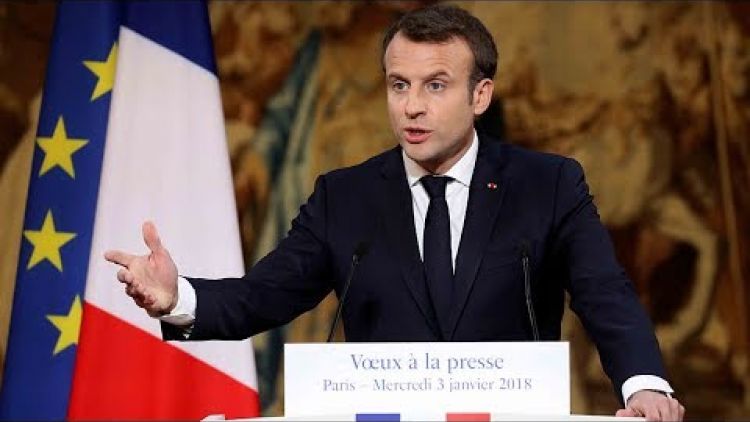France’s Ban on Fake News
President Emmanuel Macron’s attempt the “ban” fake news could turn France into a totalitarian society.
January 28, 2018
France’s president, Emmanuel Macron, announced in his New Year’s speech that he would end the spread of misinformation by “banning” fake news. The CSA (France’s media regulatory agency) would be given the power to censor any content that they deem to be “misleading”, especially news found on social media platforms. This censorship would be chiefly enforced during election periods, where many of the country’s recent political candidates have suffered from fake news smear campaigns, including President Macron himself. Immediate concerns arose over his decision, as many believed Macron’s bill to be a grave threat to free speech. Because the definition of fake news is not clearly defined, the president’s ban of fake news could very easily censor freedom of speech and expression. The people’s’ concerns are justified, as Macron’s apparent ban of fake news can violate basic human rights through giving the government full control what their people can read, see, or hear.
The government has the power to refuse, suspend or cancel agreements with websites, newspaper companies, etc. based on their content. While Macron has proposed that the CSA should censor the media, he has not brought up how this censorship of fake news would be managed and who would keep it from abusing its power. Without a person or group to keep the CSA in check, the government could easily use that power for political gain. For example, they can label information they don’t like or manipulate the truth to forward their own ambitions. This form of corruption would be very easy to get away with if Macron’s proposal becomes reality.
Censorship on a large scale has never been successful and has always resulted to massive corruptions and scandals. In countries such as China or Russia, freedom of speech is a privilege, not a right. Their limitations on free speech are similar to Macron’s proposal, where governments can control what its people hear or say. A wrong word can very lead to a hefty fine or time in prison. What is stopping the French government from doing the same?
While fake news is harmful, President Macron’s method of dealing with misinformation is dangerous because it can easily lead to corruption without the government being put in check. It should be up to the individual whether they believe something or not, and the government should not play a role in controlling what we can read, see, or hear. If Macron’s proposal becomes a reality, the president will not banning fake news, but freedom of speech and expression, and inalienable human rights.










